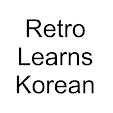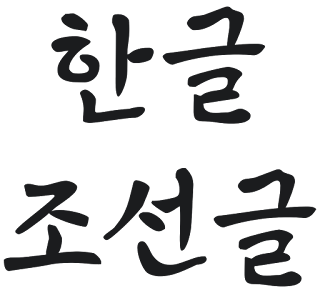If you aren't aware by now, but possibly if you found this post, then likely you have recently been enlightened, that reading is simply the best way to get a tonne of foreign language material into your brain in as little time as possible. Even having a habit of reading a tiny amount, whether it be a page a day or even a few lines, chances are you will improve significantly at Italian.
There is so much more variety of vocabulary and expressions that you would not come across if you are only to use audio as your main learning source. While there are other great resources for reading such as news articles, blog posts or even the YouTube comment section.
Reading long form books that have a fully fleshed narrative, that require us to remember key facts and even attempt to predict what may happen in the following chapters, increases our mental ability, general outlook on life and our overall happiness. On top of that when you have to look for new articles or reading content we lose time inbetween that could have been used for reading.
I have been reading a lot of books since I started learning Korean in 2019, moreso than I'd ever actually read in English. It also prompted me to visit books that I'd never read in English but didn't want to waste time reading them in English so I could kill two birds with one stone. I actually ended up reading Korean content that was created more recently and written by Koreans.
Korean doesn't have a huge classical literature library that spans from the 1800's and sometimes beyond, so Italian was a great place for me to pick up from there. Initially I will share a set of books for beginners that want to get into reading and then I will show you the great publisher Newton Compton Editori's fine selection of books that include Italian authored and worldwide authored classic books.
For Beginners
For any language learning starting off reading is going to be a struggle as they have mostly been raised to believe that it's impossible or very difficult to start reading. Personally I would like to argue that for Italian especially, there are enough cognates, that even a brief run over some grammar and a few hundred words will leave you able to read from week 1.
Luckily for us Olly Richards, has decided he would like to be the forerunner for providing reading content for beginners of many languages and has a whole set of books aimed at beginners written in many different languages.
Obviously the ones we want to focus on in this article are the two books:
The first book in the series is extremely simple, even cutting out some grammar concepts that will be used in the Intermediate book. These series are quite simple I believe that most people will be surprised that they can actually read and understand large portions of the beginner book even from the first week.
As per the instructions in the book, you may find it beneficial to read the stories multiple times before moving onto the intermediate book. I think you will surprised how strong the effect of reading is and how active your imagination will become, especially if you aren't a well versed reader in your native language.
I have a whole article on reading tips that may help those who are just starting out. Generally I would recommend, highlighting or writing down words that you don't know and looking them up after you finish each chapter or story as it will allow you to not worry about stopping and just try to reach the end. You may find that you will understand what some words mean without even having to look them up.
Reading actual novels
Despite what people think it's not actually that difficult to read a novel. Many language learners have this misconception that they need to be ready to read but actually this just holds them back. You can read from day 1 and as long as you are looking up words you will be more knowledgeable than you were the day before.
You learn words long term by encountering them hundreds of times over and over. Reading long form content such as novels will allow you to learn and remember easier and for much longer than just looking at word lists or doing flashcards. Doing those is a great way to deliberately expose yourself to a word but it's not useful over the long term.
As I mentioned before Italian has a great set of authors who have created many great works, Verga, Pirandello, Pavese to name a few. Luckily there is also an Italian publisher who is willing to publish these great works and even translate and compile works from other worldwide authors.
Newton Compton Editori have many different sets of classics but the two main ones I will be sharing are the Mammut and the MiniMammut. The Mammut set of books are generally very long books or compilations from great authors. The Minimammut set of books are just seperate novels for those that want to just buy a single title or a hardback copy of a book they love.
The beauty of this series is the price point. You can own a large library of books for a very miniscule price. If one book is going to last you many hours then the $2.99 price for the e-book versions is very enticing. I highly recommend this series of books for those that wish to get into reading in Italian. If you find that you have been learning for a long time and that your progress has stalled it may be worth purchasing one of these and seeing how you fare.
The main issue we come across is being able to differentiate between what is an easy book and what is a difficult book. To that I say, "it doesn't actually matter", even if you struggle to read a book, you will likely learn more from that book than you would an 'easy' book. Over time regardless of whether you read hard or easy books, the amount of words you look up will decrease and the amount of words that will be in your long term memory will increase.
For the value, I would first recommend purchasing one of the mammut series that combines various works for younger audiences such as:
- I magnifici 7 capolavori della letteratura per ragazzi - $5.99
- I magnifici 7 capolavori della letteratura per ragazze - $5.99
Then for harder content move up to the ones that are based on authors from various countries:
- I magnifici 7 capolavori della letteratura americana - $6.99
- I magnifici 7 capolavori della letteratura francese - $6.99
- I magnifici 7 capolavori della letteratura inglese - $6.99
- I magnifici 7 capolavori della letteratura irlandese - $6.99
- I magnifici 7 capolavori della letteratura italiana - $6.99
- I magnifici 7 capolavori della letteratura russa - $6.99
- I magnifici 7 capolavori della letteratura tedesca - $6.99
- Le magnifiche 7 signore della letteratura inglese - $6.99
Although I have linked to the Amazon versions they are actually available on Google and a few other providers if they are your preferred company of custom. If you actually managed to get through all of these you would find that your Italian has increased tenfold.
Hopefully this has lit the fire in some new language learners or sparked new inspiration for long time learners who have hit a plateau. Please check out my other content for more inspiration and I may make more content for Italian if the demand is there so please leave a comment.
For related posts please check out these pages:
- How to Start Reading in a Foreign Language
- Nintendo Switch Games to play in Korean
- The Role of Listening in Language Learning
- The Role of Grammar Study in Language Learning
- The Monolingual Transition and How to Approach it
- Realistically How Long Does it Take to Learn a Language?
- Watching Media and Using Subtitles to Learn a Language
- How to Spend as Much of Your Day as Possible Learning Korean
- Olly Richards' Short Stories in Korean for Intermediate Learners Review
- Using Audio Description for Language Learning
- I read 61 Korean books in 2020
- 7 Reading Tips to Accelerate Your Korean Learning
- I read 50 Korean books in 2021









